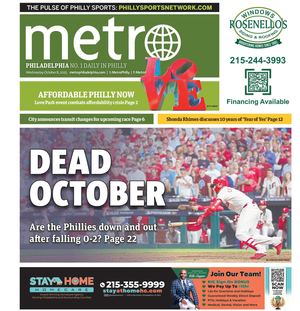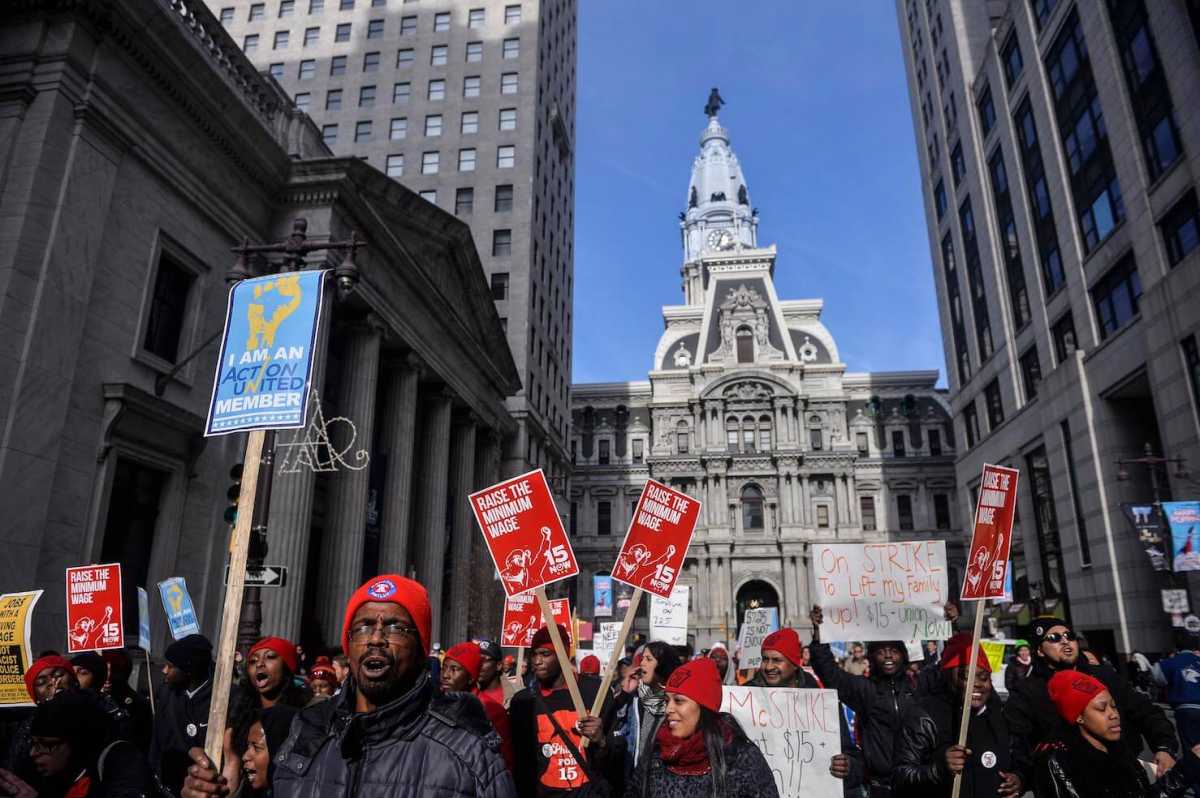With support from 60 social, community and labor organizations, Philadelphia City Council passed “Fair Workweek” legislation on Thursday. Hundreds of impacted workers, the Royals Band Dance Line, a University of the Arts dance group and drum line attended an hours-long City Council hearing to celebrate the passage of the bill.
“We can talk about poverty, or we can do something about it. We choose to do something,” said City Council Member Helen Gym. “This bill is a collaborative effort that advances a historic piece of anti-poverty legislation. It’s one of the most important municipal policies to end exploitative business practices like unstable schedules and involuntary part-time work that keep people in poverty.
Gym introduced the bill in June 2018 with eight co-sponsors to protect an estimated 130,000 workers who occupy positions in the retail industry, hospitality and food industries in Philadelphia, and have often struggled with shifting, unreliable schedules.
Philadelphia Mayor Kenney has endorsed the legislation, which once signed will go into effect in 2020 and apply to companies in the retail, hospitality or food services industry that have 250 or more employees and 30 or more locations worldwide, and would apply to full- and part-time employees. Employers will be required to provide detailed schedules 10 days in advance in 2020; 14 days in advance by 2021. At hiring, employees must get a “written, good faith estimate of the employee’s work schedule,” including their average number of hours per 90 days and whether they will be on-call.
The bill has popular support from workers-rights advocates who say such regulation is badly needed. A survey of 700 workers in these industries in Philly conducted by UC Berkeley found 66 percent of retail and service workers had irregular, variable work schedules; 62 percent of the workers got schedules with less than two weeks notice; and 29 percent work on-call – meaning they are not guaranteed hours and are only called in to work at irregular intervals, while 77 percent wanted more scheduling stability and predictability.
Adherents of the bill have argued that stronger schedules also benefit their employers by helping employees perform better and stay with companies longer due to greater work-life stability. But some business advocates questioned the wisdom of the bill.
“Neighborhood and Center City businesses negotiated with City Council in an effort to produce an outcome that is acceptable to all parties,” said Chamber of Commerce for Greater Philadelphia President Rob Wonderling. “While some amendments helped ease the regulatory burden on some employers, we are hopeful that the regulatory process will provide further relief to owners of hotels and franchise establishments.”
The Chamber said their concerns include that the bill may reduce available hours and shifts for workers in these industries, or even make it more costly or difficult to run a business in Philadelphia.
The bill includes language requiring employers to pay one hour of “Predictability Pay” (half a regular hour’s wage) for every hour the employee loses when a shift is shortened or canceled; or a single hour if the employee’s shift is changed or extended with no loss of hours (barring schedule changes caused by unexpected issues like severe weather, public safety hazards, or the employee arriving late).
The bill passed 14-3, with Councilmen Al Taubenberger, David Oh and Brian O’Neill voting against.
“Although I strongly support worker’s rights and believe this legislation is well-intentioned, I share the primary concern of the Philadelphia Chamber of Commerce that the bill, if passed, could restrict and discourage economic growth for the businesses that will be most impacted,” Taubenberger said via email. “As the former head of the Northeast Philadelphia Chamber of Commerce and a pro-business legislator, I have real qualms about the potential for negative, unintended consequences if the Fair Workweek bill becomes law.”
Ed Grose, executive director of the Greater Philadelphia Hotel Association, said hotels should not be penalized for offering voluntary, on-call hours in an industry which experiences seasonal highs and lows.
“We viewed the legislation as a potential win-win, and while the bill now includes some level of compromise, it unfortunately falls short of providing the kind of flexibility that was sought by workers and employers alike,” Grose said. “The hotels largely supports the concept of a Fair Workweek, and we hope that there will be an opportunity to make commonsense improvements to the legislation in the future. We stand ready to work toward that goal, although unfortunately, our efforts thus far have been largely rebuffed by the bill’s sponsor. We feel if a hotel team member gets offered an additional shift, and they volunteer for that shift, they should not be subject to Predictability Pay.”
Kenney will need to designate an agency to enforce new regulations while employers will now be required to keep scheduling data for two years. Non-compliant employers will be subject to fines and possible legal action by the Philadelphia Law Department.
Philly is following the example of New York City, Seattle, San Francisco, Washington D.C. and the state of Oregon, all of which have been lobbied by the “Fair Workweek Initiative,” a program of the left wing non-profit Center for Popular Democracy, which has been funded by several large groups including the Ford Foundation and George Soros’ Open Society Foundation.
























